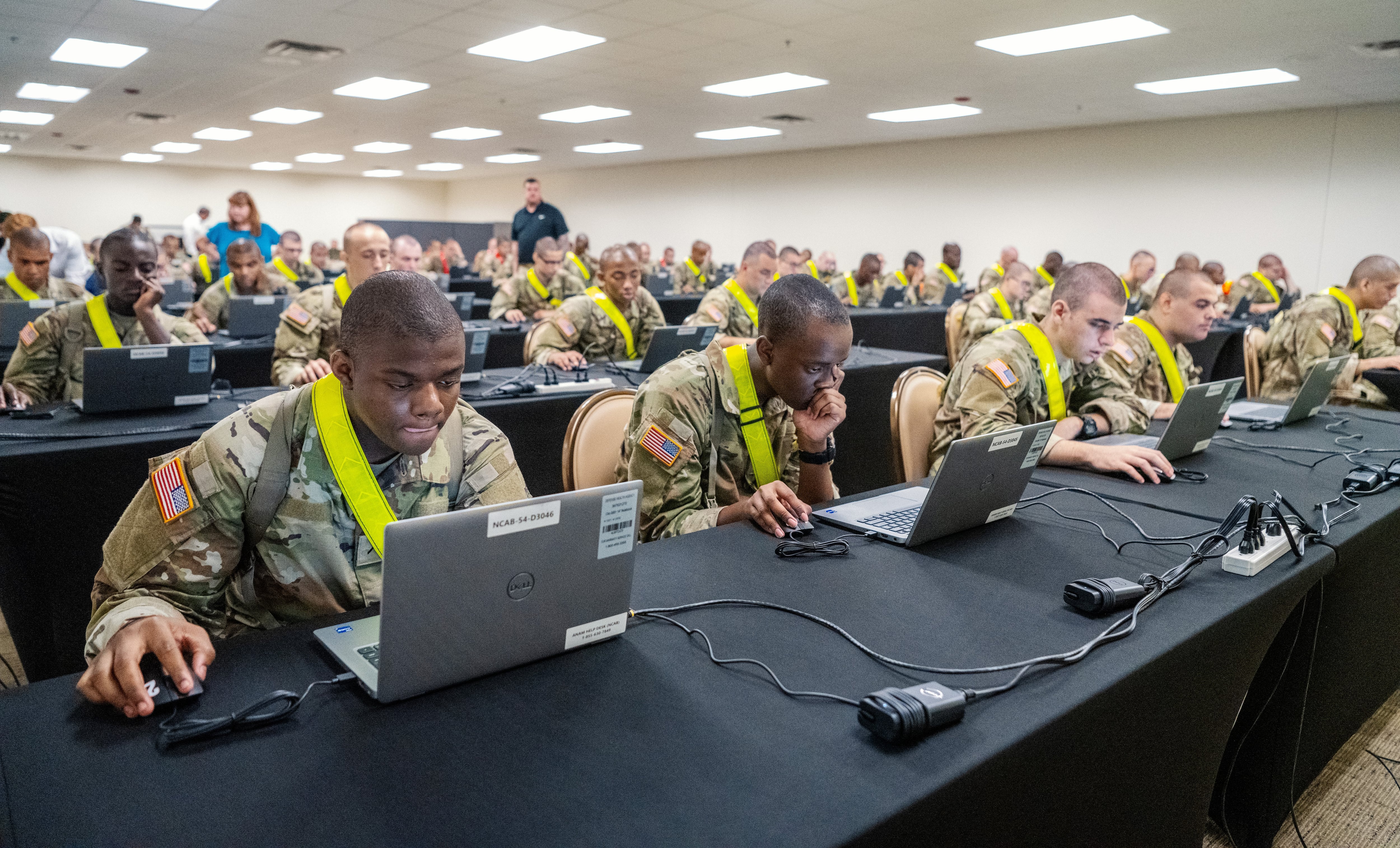The Army this summer rolled out a new basic cognitive testing program for new recruits designed to proactively monitor soldiers’ brain health, officials confirmed to Military Times.
Fort Moore, Georgia, began evaluating recruits’ brain function this month, and Fort Sill, Oklahoma, launched the program in June, according to Army Col. Jama Van Horn-Seeley of the Army Medical Command. Testing at two other basic training sites — Fort Leonard Wood in Missouri and Fort Jackson in South Carolina — is scheduled to begin in late September, she told Military Times.
According to Jennifer Gunn, a spokeswoman for the force at Fort Moore, recruits will undergo training and complete a cognitive monitoring assessment within their first seven to 10 days of enlistment.
Meanwhile, more than 5,600 Army ROTC cadets took basic brain fitness tests during their annual summer training at Fort Knox, Kentucky, in June, and West Point will begin evaluating cadets in November, Van Horn-Seeley said.
The U.S. Army said all services plan to conduct testing at all entry-level training locations by the end of 2024.
The move would allow service members’ cognitive data to be monitored early in their careers, allowing medical officials to better track significant changes, including potential brain damage.
Dr. Steven Porter, director of neurocognitive assessments in the Army Surgeon General’s Office, stressed the value of moving from a long-standing cognitive assessment program that began in 2007 (following a pre-deployment and injury-focused model) to a more comprehensive, proactive approach that regularly assesses Brain health.
“Without ongoing testing, changes in a Soldier’s thought process may not become apparent until an incident occurs that could endanger the Soldier or his unit,” he said in a statement.

The exam will not disqualify anyone from serving, Van Horn-Seeley said, adding that the 25- to 35-minute assessment will evaluate ten areas of cognitive function and can be given in an individual or group setting.
The Army discussed tracking the brain health of new soldiers earlier this year after a mass shooting by an Army Reservist in Lewiston, Maine, in October 2023. An autopsy showed the soldier had a traumatic brain injury, which is related to concussions and blasts, Army Times previously reported.
Military Times previously reported that in August, Defense Department leaders announced a series of new measures aimed at protecting soldiers from “blast overpressure” injuries associated with weapon use.
In an Aug. 8 department memo, Deputy Defense Secretary Kathleen Hicks called for all new recruits to be screened for signs of brain injury by the end of the year, and all currently serving reserve and active duty personnel to be screened by the end of fiscal 2025.
“Blast overpressure is one of many factors that can negatively impact a warfighter’s brain health,” she said in a statement.
Van Horn-Seely said the Army plans to have soldiers in career fields most likely to be exposed to blast overpressure be tested annually; personnel at risk of blast overpressure exposure will be evaluated every six months, while those least likely will be evaluated every three years.
Related

At the annual summit in July, experts gathered to review the latest research from the Department of Defense and the military and ways to protect service members exposed to blast overpressure.
“I think the key is that we need to continue to stay in sync across the Department of Defense,” Van Horn-Seely said in a statement after the event. “There is so much good work going on right now that we can learn from each other and build on each other’s strengths to create a better program overall.
Jonathan is a contributing writer and editor of Military Times’ Early Bird Brief newsletter. Follow him on Twitter: @lehrfeld_media